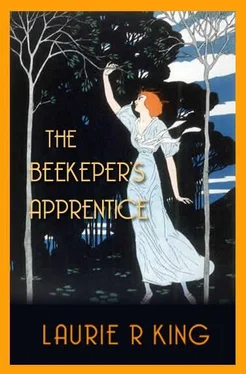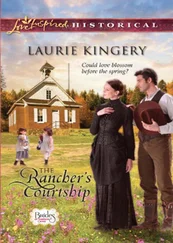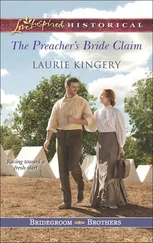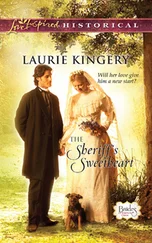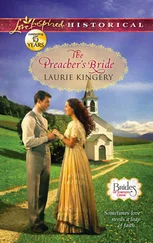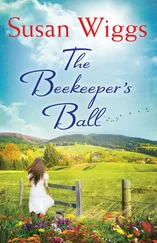Laurie King - The Beekeeper's Apprentice
Здесь есть возможность читать онлайн «Laurie King - The Beekeeper's Apprentice» весь текст электронной книги совершенно бесплатно (целиком полную версию без сокращений). В некоторых случаях можно слушать аудио, скачать через торрент в формате fb2 и присутствует краткое содержание. Жанр: Триллер, Классический детектив, на английском языке. Описание произведения, (предисловие) а так же отзывы посетителей доступны на портале библиотеки ЛибКат.
- Название:The Beekeeper's Apprentice
- Автор:
- Жанр:
- Год:неизвестен
- ISBN:нет данных
- Рейтинг книги:5 / 5. Голосов: 1
-
Избранное:Добавить в избранное
- Отзывы:
-
Ваша оценка:
- 100
- 1
- 2
- 3
- 4
- 5
The Beekeeper's Apprentice: краткое содержание, описание и аннотация
Предлагаем к чтению аннотацию, описание, краткое содержание или предисловие (зависит от того, что написал сам автор книги «The Beekeeper's Apprentice»). Если вы не нашли необходимую информацию о книге — напишите в комментариях, мы постараемся отыскать её.
The Beekeeper's Apprentice — читать онлайн бесплатно полную книгу (весь текст) целиком
Ниже представлен текст книги, разбитый по страницам. Система сохранения места последней прочитанной страницы, позволяет с удобством читать онлайн бесплатно книгу «The Beekeeper's Apprentice», без необходимости каждый раз заново искать на чём Вы остановились. Поставьте закладку, и сможете в любой момент перейти на страницу, на которой закончили чтение.
Интервал:
Закладка:
Dack at Oxford, I threw myself furiously into my studies. I had missed nearly a month, and although the Oxford program is not dependent on classes and attendance at lectures, one's absence is noted and strongly disapproved. My maths tutor was away, illness of some kind, and I was secretly grateful not to have that pressure. The woman who tutored Greek was also away, vanished into maternity over the Christmas holidays. By dint of working flat out for three weeks I managed to redeem myself in the eyes of my remaining supervisors and felt that I had caught up to my own satisfaction as well.
I changed that spring. For one thing, I no longer wore trousers and boots, but filled my wardrobe with expensive, austere skirts and dresses. I had, as I feared, alienated Ronnie Beaconsfield, and lacked the energy to regain her friendship, but instead made an effort to make contact with the other girls in my year. I found I enjoyed it, although after a few hours their talk made me impatient for my solitude. I took long walks through the streets and the desolate winter hills around Oxford. I took to attending church, particularly Evensong at the cathedral, just to sit and listen. Once I went to a concert with a quiet young man from my patristics lecture. The music was Mozart, and well played, but halfway through the shining genius and the pain of it made it impossible to breathe, and I left. The young man did not ask me again.
My written work changed, too. It became even more precise, less tolerant of other, softer viewpoints, more ruthlessly logical: "Brilliant and hard, like a diamond" was a remark from one reader, not altogether approving.
I drove myself. I ate less, worked invariably into the early hours of morning, drank brandy now to help me sleep.
I laughed when a librarian at the Bodleian suggested, only half joking, that I might move into the stacks, but my laughter was a polite, brittle noise. I became, in other words, more like Holmes than the man himself: brilliant, driven to a point of obsession, careless of myself, mindless of others, but without the passion and the deep-down, inbred love for the good in humanity that was the basis of his entire career. He loved the humanity that could not understand or fully accept him; I, in the midst of the same human race, became a thinking machine.
Holmes himself, on his farm in the south downs, was retreating from the world into softness and bewilderment.
Mrs. Hudson cut short her expedition to the Antipodes and returned home in late February. Her first letter to me was brief and shocked at the state she had found Holmes in. Subsequent letters neither accused nor begged, but pained me even more deeply when she simply stated that Holmes had not been out of bed one day, or that he was talking about selling his hives. Lestrade had set guards on the cottage at all times. (He had tried to do the same for me, but I had baited him and eluded them and finally he withdrew. I did not believe any of Lestrade's men could guard me better than I could myself, and as time went on I was more surely convinced that the rules of the game had indeed been changed, and that I was not yet in danger. Besides, I found their constant presence unbearable.)
Watson wrote too, long tentative letters, mostly about Holmes' health and mind. He came to see me once in Oxford. I took him for a long walk so I might not have to sit and face him, and the cold and my coolness sent him limping away with his bodyguard.
It was a long, bitter winter after the warmth of Palestine.
I read my Hebrew Bible, and I thought about Holofernes and the road to Jerusalem.
In early March I received a telegram from Holmes, his preferred method of communication. It said simply:
ARE YOU COMING DOWN
BETWEEN TERMS QUERY
HOLMES
I read it openly at Mr. Thomas's busy front desk and allowed a short twist of irritation to show on my face before I turned to go upstairs. The next day I sent him a return question.
SHOULD I QUERY
RUSSELL
The following day his response lay in my pigeonhole.
PLEASE DO
MRS HUDSON WOULD ALSO BE GLAD
HOLMES
Mine in return, sent two days later, confirmed that I would come.
The next free day I went to London to see the executors of my parents' will, to lay before them the proposal that I be given sufficient advance from my inheritance, now less than two years away, to purchase a motorcar. The partner who handled my parents' estate hemmed and hawed and made several private telephone calls, and to no great surprise of mine he approved. I went down the next day to the Morris Oxford garage and paid for it, as well as arranging lessons. I was soon mobile.
It was at this time, two weeks before the end of term, that I first became aware that I was being watched. I was highly preoccupied, and often read a book while walking, so it is possible that they had been present before and I hadn't noticed them. The first time I saw the man, I was outside my lodgings and realised suddenly that I had forgotten a book. I doubled back quickly to get it, and out of the corner of my eye noticed a man stoop down suddenly to tie his shoe. It wasn't until I had my key in the door that it hit me: He had been wearing laceless shoes. After that I was more attentive, and found that a woman and another man alternated with the first. All were reasonably good at disguises, particularly the woman, and I should certainly not have been able to pick out the nun with no scuffs on her toes or the man walking the bulldog as being the same person had I not spent time under Holmes' tutelage.
I had only one problem. If I had truly cut myself off from Holmes, I would not hide my annoyance at being spied on. However, I hesitated to bring the thing into the open before consulting him. This was the first time anyone had come sniffing around the bait at my end, and I was loath to frighten them off. Would the adversary believe that I was not seeing them? They were far from obvious, but still — I decided to continue as before, and became even more absentminded until one day as I had my Greek Testament in front of my nose, I walked into a lightpost on the High Street. I found myself sitting stupefied on the ground while people exclaimed over the blood on my face and a young woman held out my shattered spectacles. I came home from the surgery with a large plaster on my forehead, and I had to wear my spare spectacles for two days while the others were repaired. As I would probably not have recognised Mycroft Holmes himself standing in front of me with the old ones on, it settled temporarily the problem of whether or not I ought to notice my followers.
The doctor who stitched me up suggested mildly that I keep my mind off aorist passive verbs while I was walking, and I had to agree. As an actress I was a good changeling.
When my new glasses came I found my tail still behind me. I decided that I would drive to Sussex rather than take the train, and made prior — public — arrangements with the garage around the corner where I kept my new car, telling them that I would be leaving the next morning for my trip home. I wanted to be certain that I was followed, for I was on their mistress's trail every bit as much as they were on mine.
They used five cars on the journey, which proved the money behind them. I wrote down the numbers from their plates when I could read them, which was in three cases, and noted carefully the cars and all their drivers. (I doubt that the doctor would have considered the exercise less distracting than aorist passives, but I avoided all accidents and do not think I was the cause of any one else's.) When I took lunch in a pub before reaching Guildford, the young couple kissing in the front of the roadster pulled out of the parking area three cars behind me. When I stopped for tea on the road to Eastbourne, the old man who had replaced the couple twenty miles earlier drove past, but the woman in the old Morris, who was walking a (familiar?) bulldog behind the inn, was soon behind me on the road. Her lights drove on past only when I turned into my own road a few miles from Eastbourne. I breathed a sigh of relief that they hadn't lost me. I wanted them here, to witness my innocent behaviour and report it to their boss.
Читать дальшеИнтервал:
Закладка:
Похожие книги на «The Beekeeper's Apprentice»
Представляем Вашему вниманию похожие книги на «The Beekeeper's Apprentice» списком для выбора. Мы отобрали схожую по названию и смыслу литературу в надежде предоставить читателям больше вариантов отыскать новые, интересные, ещё непрочитанные произведения.
Обсуждение, отзывы о книге «The Beekeeper's Apprentice» и просто собственные мнения читателей. Оставьте ваши комментарии, напишите, что Вы думаете о произведении, его смысле или главных героях. Укажите что конкретно понравилось, а что нет, и почему Вы так считаете.
